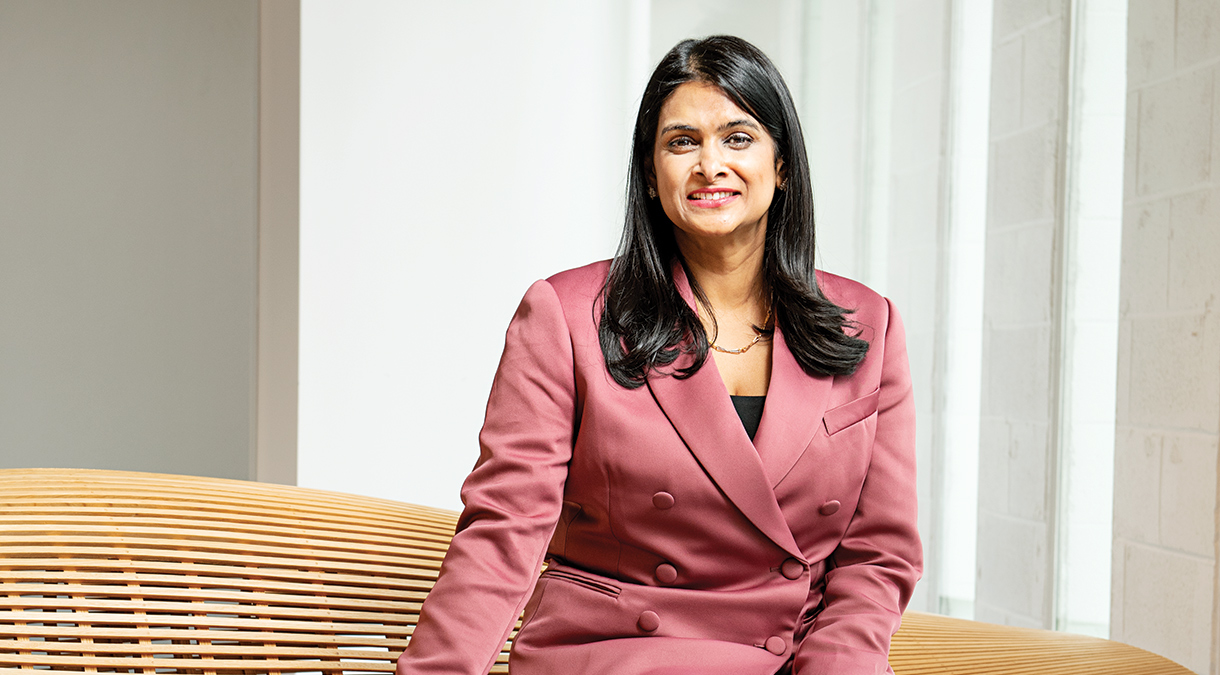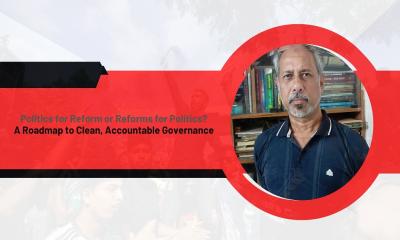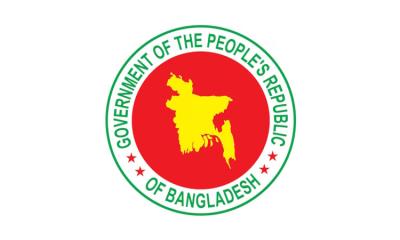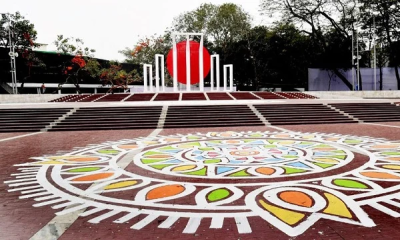The concept of value-investing, made popular by Warren Buffett, revolves around buying high-quality businesses at prices below their intrinsic value and holding them for the long term. Value investors ignore media hype and focus on fundamentals and believe that panic in the news can present a good buying opportunity.
The recent events in Bangladesh leading to the August 5, 2024 ouster of Bangladesh’s Prime Minister Sheikh Hasina after fifteen years of autocratic rule might spook immature investors - but a value based investing mindset urges that now is the time to invest in Bangladesh.
Here are the top 5 reasons why:
1: The Fundamentals of the Bangladesh Economy Remain Strong
Bangladesh is one of the most dynamic economies in Asia, with HSBC projecting it will be the world’s 26th largest economy in the next decade. In recent years the country has been hailed as the next “Asian Tiger,” drawing comparisons to the rapid economic development of countries like South Korea, Singapore, and Taiwan. This transformation is underpinned by several key factors that position Bangladesh as a powerhouse in the region.
The economy is growing fast: Consistently achieving growth rates exceeding 6-7% annually, ranking it as one of the fastest growing economies globally, Bangladesh has grown faster over a longer period of time than even China. This steady GDP growth can be attributed to robust export performance and burgeoning consumption demand. GDP per capita has also steadily increased, exceeding India’s in recent years.
The economy is diverse and diversifying: While the economy is largely supported by its robust ready-made garment manufacturing (RMG) sector, the second-largest in the world after China, Bangladesh has been diversifying its economy into new sectors such as pharmaceuticals, electronics, shipbuilding, and agro-processing.
The population is young: Over half of Bangladesh’s population is under the age of 25. This "demographic dividend" allows Bangladesh to reap the benefits of a young, dynamic workforce that is increasingly skilled and educated. Investments in human capital are creating a more competitive and adaptable workforce, ready to drive the country into more value-added industries.
Poverty levels have fallen dramatically: Bangladesh has made significant strides in reducing poverty, improving healthcare, and raising literacy rates. Between 2000 and 2020, the country halved its poverty rate, and extreme poverty now affects less than 10% of the population. On social development indicators, Bangladesh outperforms every country in the region, thanks to progress in education and healthcare.
Bangladesh has grown faster over a longer period of time than even China.World Bank data
Bangladesh is resilient and capable of thriving in our polycrisis future — just look at what it’s accomplished in the last 12 months as well as the last 30 years. It has transformed before and it is doing it again now. The fundamental factors that drove Bangladesh’s evolution from a low-income, agrarian economy to a thriving industrial and digital powerhouse are still intact. Former Prime Minister Sheikh Hasina, despite her tarnished legacy, deserves credit for fostering this growth.
HSBC Global Research wrote in their report from earlier this month: “Here comes Bangladesh – walking a little wobbly at the moment, perhaps, but bound to strut confidently again soon enough.” Considering the civil unrest of July and August, including extended periods of internet outages, and the massive challenges before the new government, their projections remain optimistic and rank Bangladesh as outpacing most of the rest of the world.
Smart investors agree. Venture capitalist Robin Butler (Partner, Sturgeon Capital) says: “The fundamentals that make
an appealing market haven`t changed with the recent unrest, so we are still excited by the potential to build category defining technology companies in the market.”
2: The new administration`s commitment to reform and anti-corruption is already having a positive impact on the economy
The students’ revolution leading to Prime Minister Sheikh Hasina’s resignation revealed the youth’s deep frustration with the rampant corruption and cronyism that belied the growth. Global investors should view this positively, as the student leaders who hold prominent positions in the caretaker government will hold the new leadership accountable to a reform agenda.
With the promise of new leadership, fairer market practices and the possibility of reform, things are looking brighter already. In the 3 days following Prime Minister Sheikh Hasina’s resignation on August 5, the stock market index grew by 13% and the USD exchange rate depreciated by 6%.
Mr. Butler (Sturgeon) noted, “While Sheikh Hasina`s government had done an excellent job in building out the infrastructure in Bangladesh and the RMG sector, the pace of change and innovation had become stifled by their length of time in power.”
In addition, international agencies such as the World Bank, the IMF, the Asian Development Bank, JICA, and others are committed to support Bangladesh’s next chapter. The World Bank has already committed USD $2B to help the government’s reform agenda.
The government is already well on its way to managing interest rates, shoring up the balance of payments, pruning fiscal commitments, and rebuilding revenues.
The following regulatory reform and anti-corruption agenda items are also top priorities:
Banking Sector Reforms: The Bangladesh Bank, Bangladesh’s central bank, has already taken aggressive measures to strengthen oversight of the banking sector, including stricter regulations on loan disbursements, enhanced scrutiny of non-performing loans (NPLs), and increased transparency for financial institutions. The Bangladesh Bank must be made fully independent.
Anti-Money Laundering Measures: Efforts to tighten anti-money laundering (AML) laws and compliance have been implemented to prevent financial crimes. The Financial Intelligence Unit (FIU) of Bangladesh is tasked with monitoring suspicious transactions and enhancing the overall financial regulatory framework.
Anti-Corruption Commission (ACC): The ACC is empowered to investigate high-profile corruption cases.
Judicial Reforms: Judicial reforms must ensure that corruption cases are handled swiftly and fairly, which would improve the overall accountability of public and private sectors. The independence of the judiciary must be guaranteed.
Commitments to International Standards: Bangladesh is under pressure from international agencies and others to adhere to global standards for transparency and anti-corruption. This includes compliance with international agreements like the Financial Action Task Force (FATF) recommendations.
Thought leaders and active investors share the view that the time to invest in Bangladesh is now. According to Saif ul Islam, President, Dhaka Stock Exchange Brokers Association, “Many investors believe that the current interim government will create an investment-friendly environment in the country. ... It is also expected that the cost of doing business will come down if the present government can successfully address corruption at all levels.”
Those with deep experience in the sector such as Javed Khan, who advises international investors in the Bangladesh market advises: “Investors looking at the Bangladesh market should approach with caution but also recognize the potential for positive change, and a more transparent and stable investment environment in the future.”
Kerry Breen, a private equity investor seasoned in emerging markets, Senior Director, Brummer & Partners, best summed up the value based mindset towards Bangladesh today: “The future of the country can be very bright indeed. Bangladeshis are very entrepreneurial and have helped power strong economic growth for decades already. The right enabling environment would unlock even greater growth.”
3: Bangladesh’s economy is too big to ignore
A seminal BCG report aptly titled: “Bangladesh: The Surging Consumer Market Nobody Saw Coming” long predicted this moment in time. Today, Bangladesh’s GDP is approximately USD $450B, and is expected to exceed USD $750B by 2029. The size of the market itself, and the size it is expected to achieve in the coming years, make it a force in the global economy that cannot be ignored.
HSBC forecasts that Bangladesh will become the 26th largest economy in the world by 2030; and in PricewaterhouseCoopers’ report entitled "The World in 2050", PwC projects Bangladesh to be among the fastest-growing economies and could rise to the 28th largest economy by 2030.
4: Where there is instability there is opportunity: the market is on sale
Opportunistic investors realize that the misperceptions of instability create a pricing gap; valuations are bottoming out as things can’t get much worse. In fact, the recent changes can only boost the long term fundamentals of the economy. There is also a learning curve in any emerging economy, so now is the time to take advantage of entry at a time where deep learnings are available at lower prices. As Mr. Butler (Sturgeon) notes, “Business is never ‘normal’ in a developing economy, so most companies are well placed to handle the current dislocation. … The long-term opportunity remains, and in the short-term there is a mispricing due to a gap between perception and reality.”
Bijon Islam, CEO of Lightcastle Partners, further points out: “if you haven’t invested in Bangladesh before and you don`t start now, you won`t develop the understanding of the market that will enable you to take advantage when the economy fully recovers, reforms happen and Bangladesh becomes a geographical hotspot.”
5: Risk always needs to be managed, the same ways everywhere
Emerging markets are a long term play; Bangladesh is no exception. Strike before the iron gets hot: There were few institutional investors in India at the turn of this century, but those who entered the market twenty years ago are reaping the benefits today. Investors are ultimately risk managers, and the recent regime change is merely one other factor to take into account when determining whether and when to invest.
There is always some element of political risk that needs to be managed in these markets; but no informed observer could consider Bangladesh chaotic even after recent events. On macro factors and investment climate, Bangladesh clearly has better investment prospects than Egypt, Nigeria, and Kenya — which are economies of comparable size. In the region, markets such as Pakistan and Sri Lanka remain much riskier.
Mr. Islam reminds us: “There can be short term bends in the race track but we believe in supporting enterprises in the long run and the ethical, transparent and solid companies will persist the test of time.”
Nobel Prize Laureate Professor Mohammad Yunus is the leader of Bangladesh’s new interim government, a role he took on at the request of the student leaders who ousted the previous Prime Minister. His global profile, reframing of the need to invest in emerging markets and their people, his deep knowledge of the foundational microeconomics of the country, and significant goodwill from the global community, the broader public, and the Bangladeshi diaspora position him well for success.
The time is now to take note and make a bet on Bangladesh. Value based investors know well -— uncertain times create the best opportunities.
This article was first published in Forbes. The writer, https://www.forbes.com/sites/sylvanaqsinha/, is a founder, investor, and CEO of Praava Health, the first and only one-stop-shop outpatient healthcare system in Bangladesh, established with the mission of democratizing high-quality medical treatment in emerging and growth markets.




-20251228011000.webp)












-20260220065859.jpeg)


-20260219110716.webp)

-20260219054530.webp)















